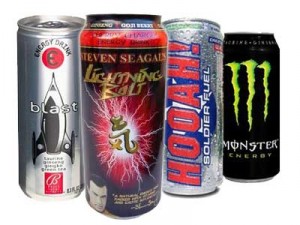 Energy drinks have long been a source of controversy, but lately they have come under fire, particularly an alcoholic brand Four Loko, following reports of hospitalizations and even deaths tied to the pick-me-up drinks.
Energy drinks have long been a source of controversy, but lately they have come under fire, particularly an alcoholic brand Four Loko, following reports of hospitalizations and even deaths tied to the pick-me-up drinks.
Now there’s a study that links regular energy drink use to alcohol abuse. The study found that college students who consume energy drinks at least once a week are more than twice as likely as their peers to show signs of alcohol dependence. This can include symptoms of withdrawal and the inability to cut back on drinking.
The most interesting, and maybe controversial, part of the study is that the drinks don’t have to be mixed with alcohol to lead to alcoholism.
“The odds were fairly strong, especially when you look at the dose of energy drink used,” says Amelia Arria, PhD, the lead researcher and director of the Center on Young Adult Health and Development at the University of Maryland School of Public Health, in College Park.
This is where the controversy comes into the picture for me: The findings don’t show cause and effect, and they don’t even know whether or not consuming energy drinks is directly linked to alcohol problems.
So, to that I say… what exactly does this study prove?
Look, while I may on rare occasion partake in an energy drink, I’m not an advocate or anything, but this just seems to be one of those types of studies that at first blush looks like it’s going to tell you something interesting, but come to find out, things are just as unclear as they were before the study is released.
If I were to take a very non-scientific approach to the subject, I would say that the connection is most likely in the fact that someone who has an addictive personality (alcoholics) would also be more prone to partake in other stimulants on a habitual level, such as energy drinks.
Another aspect that is touched on in the study is how energy drinks may, in essence, inflame alcohol abuse. This would come in the form of mixing energy drinks with alcohol. This can give the drinker the false sense of sobriety due to the stimulant, which could lead to a more excessive drinking binge than if done without the energy drink.
(via: CNN)
